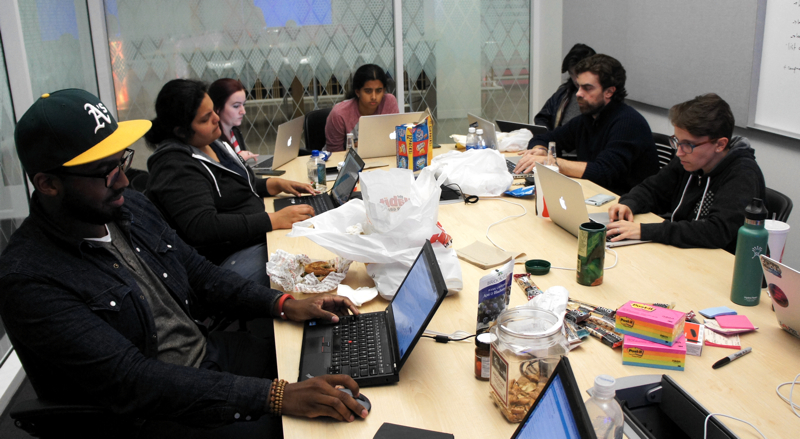Fellows Hack with the California Civic Data Coalition
by Ryan Pitts

Before we gathered the 2015 Knight-Mozilla OpenNews fellows for an onboarding week in Los Angeles this month, we thought a lot about the themes that run through a successful fellowship year. As a fellow, you get the time and opportunity to explore new skills and roles, you discover that collaboration has an outsized effect as you work through problems, and you make the whole community stronger when you share what you learn.
We came back to those core principles many times throughout the week, and discussed how they’re all supported by building strong relationships within the fellowship group. Our hope was for all seven fellows to finish the week feeling like a true cohort.
Working on a good news app sits at the intersection of all this, so we set aside two days of our onboarding week for a hack project designed to give the fellows the opportunity to:
- Understand the skills and interests they each bring to the cohort, and find areas they want to explore more deeply during their fellowships
- Get a feel for working with each other, thinking ahead to collaboration throughout the year
- Meet members of the journalism-code community and see how they think about their work
- Make journalism happen
The project needed to have room for both engineering and design work, which led us to the California Civic Data Coalition’s campaign-finance software. Last summer, OpenNews worked with journalists from California news organizations to open-source this set of tools that turns ugly government data into something useful for reporters. The CCDC project has been in active development for a while now, and we connected with them again to find a way to collaborate during onboarding.
Before the fellows arrived in L.A., Ben Welsh and Anthony Pesce of the Los Angeles Times and Aaron Williams of the Center for Investigative Reporting laid out the CCDC mission for everyone who would work on the project, and introduced a vision for two big software upgrades: a scraper to tackle a candidate list that the state refused to package with the rest of the data, and visualization tools to help reporters see where the dollars were really flowing.
We also prepared advance instructions for setting up a development environment so no one had to spend in-person group time just getting set up. We spent Wednesday and Thursday of the onboarding week working from a beautiful new journalism building at USC, beginning the first morning with some goal-setting and then breaking into front-end and back-end groups. All seven fellows came in with development and design experience, but this particular project still chalked up a lot of firsts: For some, it was their first time working in a collaborative environment, git push-ing into someone else’s open-source project. For others, it was a chance to try out new software or visualization frameworks. For all of them, of course, it was their first time working with one another.
But at the end of two days, the CCDC’s tools looked different and worked better, in ways both visible and under the hood. A set of new scrapers pulled in a normalized set of candidate and election records, with data models to hold it all. There were sortable and searchable data tables, charts comparing committee expenditures and war chests, and a crossfilter implementation to zoom in on specific time frames. Because we only had two days together, we finished with some page stubs and plenty of ideas and wireframes left on the whiteboard, but we did good work.
Looking back on the process, a few key qualities made it a success:
- Choosing a project that had both back-end and front-end needs
- Finding a generous team of experts who could provide guidance
- Providing initial documentation that included environment setup
- Running regular check-ins covering what each person had just finished and what was coming up next
- Establishing goals that were reasonable to hit in two days of work, for a group of developers coming in cold
And, of course, the fellows. It’s extraordinary to see creative, brilliant people solve problems on the fly, and start to find their place within a group. To see journalism get done by people willing to say, “I’ve never done this before. Neither have you? OK, let’s do it together.” That’s the tone we wanted to set for this entire fellowship year.
The latest from the OpenNews team
Our next step in community-driven leadership: an Advisory Council
Read all our news in our OpenNews blog

